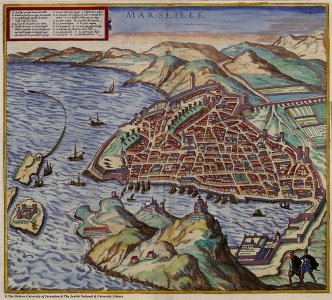Workshop Goals
A growing number of computer vision researchers are becoming interested in applications for persons with visual impairments (VI), including low vision and blindness. Recent advances in algorithms, sensors and embedded computing hold the promise to enable computer vision technology that can address the needs of this disadvantaged population. Developing assistive tools for the VI community requires informed knowledge of several relevant human factor and technological issues:
- The actual problems impairing the daily quality of life of these users;
- An awareness of existing assistive aids;
- A realistic understanding of the possibilities offered by the available interfaces (visual, audio, tactile);
- A system-level approach to the design of algorithms and hardware that takes into consideration practical factors such as size, speed and cost.
This
workshop aims to bring together computer vision researchers and experts
in VI rehabilitation and assistive technology. Attendance by VI experts
outside the computer vision community will also be encouraged. By
addressing the context in which assistive technology is used and
designed, the workshop seeks to help researchers identify fruitful
areas of overlap between the most pressing needs of the VI population
and the capabilities of computer vision technology. A general
discussion session at the end of the workshop will facilitate the
exchange of ideas between computer vision researchers and VI experts.
A previous version of this workshop
under the same title took place in 2005 as a satellite workshop of the
IEEE CVPR conference. The proposed workshop is thus the second in this
series. We believe that advances in technology and applications (e.g.
the increasingly powerful and ubiquitous mobile/cell phone platform),
as well as increased interest in the
computer vision community for the area of assistive technology, will
make the proposed workshop a venue for exciting and novel ideas and
discussions.
Workshop Program
Welcome
9:00-9:15
Keynote Talk #1
Jan-Ingvar Lindstom
9:15-9:45
Session 1: Low Vision and Color Impairment
J. -B. Huang, S.-Y. Wu and C.-S. Chen.
Enhancing Color Representation for the Color Vision Impaired. pdf download
9:45-10:05
J.-B. Bernard, E. Tlapale, G. Faure, E. Castet and P. Kornprobst.
Navisio: Towards an integrated reading aid system for low vision patients.
pdf download
10:05-10:25
Coffee break
10:30-11:00
Session 2: Mobility
J.M. Sáez and F. Escolano.
Stereo-based Aerial Obstacle Detection for the Visually Impaired.
pdf download
11:00-11:20
V. Pradeep, G. Medioni and J. Weiland.
Piecewise Planar Modeling for Step Detection using Stereo Vision.
pdf download
11:20-11:40
C. McCarthy, N. Barnes, K. Anstey and M. Horswill.
Towards a Hazard Perception Assistance System using Visual Motion.
pdf download
11:40-12:00
Lunch
12:00-14:00
Keynote Talk #2
James Nolan
14:00-14:30
Session 3: Sonification
B. Deville, G. Bologna, M. Vinckenbosch and T. Pun.Guiding the focus of attention of blind people with visual saliency. pdf download
14:30-14:50
B. Durette, N. Louveton, D. Alleysson and J. Herault.
Visuo-auditory sensory substitution for mobility assistance: testing TheVIBE. pdf download
14:50-15:10
Coffee break
15:30-16:00
Session 4: Systems
O. Koch and S. Teller.
A Self-Calibrating, Vision-Based Navigation Assistant. pdf download supplemental video download
16:00-16:20
S. Krishna, D. Colbry, J. Black, V. Balasubramanian and S. Panchanathan.
A Systematic Requirements Analysis and Development of an Assistive Device to Enhance the Social Interaction of People Who are Blind or Visually Impaired. pdf download
16:20-16:40
Gemstone Team Vision, B. Bobo, R. Chellappa and C.-M. Tang.
Developing a Real-Time Identify-and-Locate System for the Blind. pdf download
16:40-17:00
Financial Support:
We are grateful to The Smith-Kettlewell Eye Research Institute for funding transportation costs for our keynote speakers.

